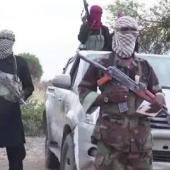Gwantu, who represents Gwantu Ward in Sanga Local Government Council, was abducted in the early hours of Friday.
Bandits have kidnapped a serving councillor, Hon. David Ali Gwantu, in the Southern Kaduna area of Kaduna State.
Gwantu, who represents Gwantu Ward in Sanga Local Government Council, was abducted in the early hours of Friday.
The incident occurred shortly after midnight at his residence in Gwantu town, where the assailants reportedly stormed the house and whisked him away in the presence of his family members.
On Sunday, SaharaReporters reported that seven victims, mostly minors, killed in Southern Kaduna last week, were laid to rest on Saturday, August 29, 2025, in Unguwan Rimi village, Kauru Local Government Area.
“They were laid to rest in their community by their families, religious leaders, and others,” a community source told SaharaReporters’ New York office via WhatsApp on Sunday.
Last Monday, SaharaReporters reported that a deadly terrorist attack had claimed seven lives in Southern Kaduna, despite the peace agreement reached between the Kaduna State Government and bandit leaders.
SaharaReporters reported that heavily armed attackers struck late last Sunday night into the early hours of Monday, killing seven people, mostly minors.
Sources told SaharaReporters that several adults managed to escape.
In a related development, a community leader reported that bandits also targeted Kokob-Bajaga village in Kajuru Local Government Area last Tuesday.
Kaduna’s Peace Pact With Bandits
Meanwhile, the Kaduna State government, in collaboration with federal agencies, launched what it called the “Kaduna Model”—a holistic peace initiative aimed at addressing both the symptoms and root causes of insecurity.
The pact involved direct engagement with notorious bandit leaders operating in areas like Birnin Gwari and Giwa.
These were not petty criminals; they were warlords like Yellow Jambros and Dogo Gide, men accused of mass killings, kidnappings, and extortion across Kaduna and neighboring states.
Yet, under the new peace deal, many of them laid down their arms. Around 200 fighters reportedly surrendered, some even enrolling in government-run rehabilitation programs.
The initiative included promises of disarmament, reintegration, and rural development. Roads once feared, like the Kaduna-Birnin Gwari highway, reopened, and villagers began returning to their homes.
The government touted these as signs of progress, a fragile hope in a region long defined by despair.
Still, the pact was not without controversy. Critics, including Christian leaders and other stakeholders, voiced concern over the lack of transparency and the exclusion of victims from the peace process.
The Northwest Governors Forum had previously agreed to reject negotiations with criminals, making Kaduna’s unilateral move a bold departure.
Governor Uba Sani defended the approach as a “carrot-and-stick” strategy, insisting that peace must be pursued from a position of strength.












